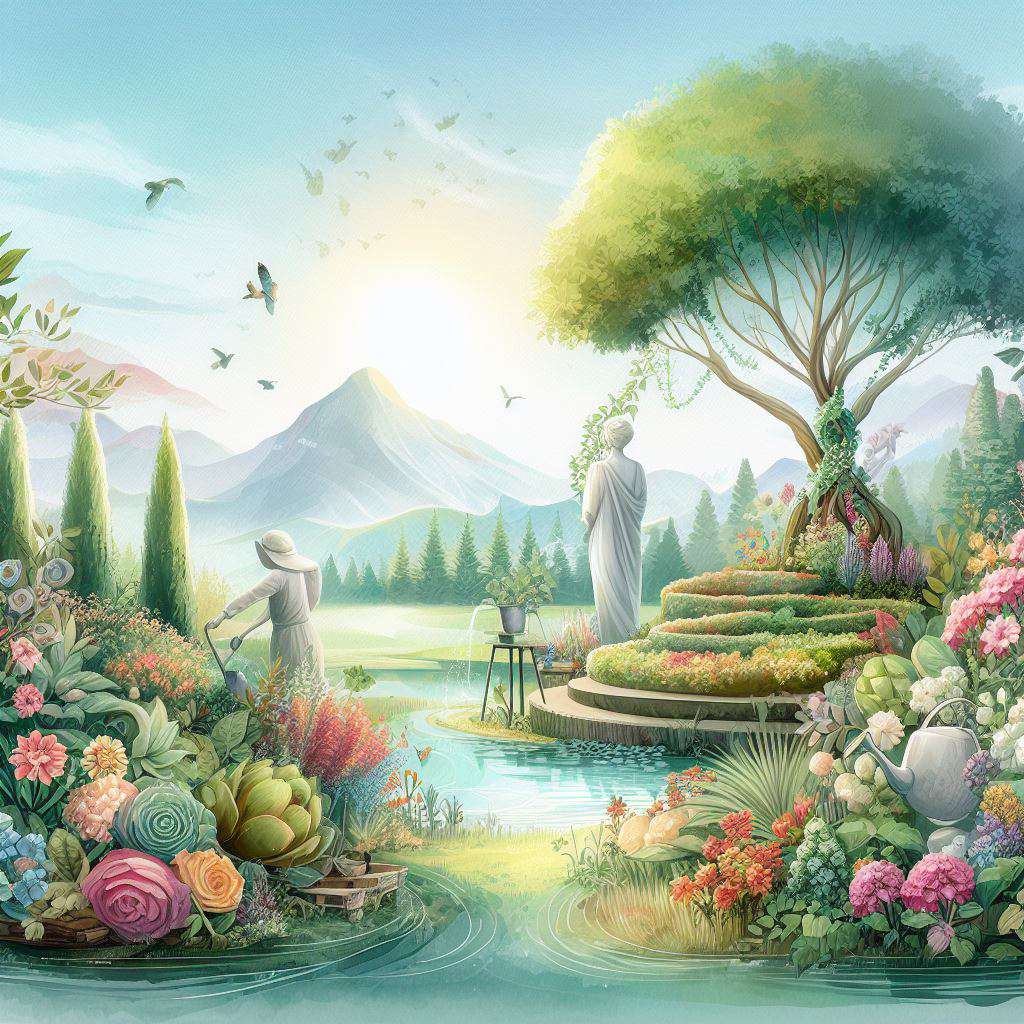
Introduction
Gardening, often regarded as a therapeutic and creative pursuit, is much more than just planting flowers or vegetables. It is a harmonious blend of art and science, a practice that connects us to nature while offering countless benefits for our well-being and the environment. In this article, we will explore the world of gardening, from its historical roots to modern sustainable practices, and the profound impact it has on our lives.
The Historical Roots
Gardening has deep historical roots, dating back thousands of years. It was essential for early human survival as communities began to settle and transition from nomadic lifestyles. From the Hanging Gardens of Babylon to the palace gardens of Versailles, throughout history, people have sought to create beautiful and functional green spaces.
The Art of Gardening
Gardening is an art form, allowing individuals to express their creativity through design, color, and arrangement. Whether it’s the vibrant blooms of a flower bed or the intricate patterns of a vegetable garden, a well-tended garden is a canvas for self-expression. Gardeners carefully select plants, arrange them for visual appeal, and often create themes or narratives within their landscapes.
The Science of Gardening
Behind the artistic façade, gardening is deeply rooted in science. Understanding soil composition, plant biology, and the environmental conditions required for different species is fundamental to success. Factors like sunlight, temperature, and water are meticulously considered to ensure plants thrive. Modern gardening also incorporates sustainable practices, such as composting, integrated pest management, and water conservation.
Health and Well-Being
Gardening offers numerous health benefits. It’s a physically active hobby that encourages exercise and outdoor exposure, promoting a healthier lifestyle. Studies have shown that spending time in green spaces reduces stress, anxiety, and depression, making gardening an excellent form of mental therapy. Furthermore, growing your own organic produce allows you to enjoy nutritious and fresh food while reducing your carbon footprint.
Sustainability in Gardening
As environmental awareness grows, gardening has evolved to embrace sustainability. Gardeners now prioritize native plants, which require fewer resources and provide essential habitats for local wildlife. Techniques like rainwater harvesting and the use of organic fertilizers are becoming standard practices, reducing the environmental impact of gardening.
Community and Social Connection
Gardening can be a communal activity that fosters connections within neighborhoods. Community gardens are hubs for social interaction, where people come together to share knowledge, resources, and a love for gardening. These spaces not only beautify communities but also strengthen bonds among residents.
Conclusion
Gardening is a timeless practice that combines the art of creativity with the science of nature. It offers countless benefits, from enhancing our well-being to promoting sustainability and community bonds. Whether you have a small balcony or a sprawling backyard, there’s a place for gardening in everyone’s life. So, grab your trowel, get your hands dirty, and discover the joy and beauty of cultivating your own green oasis.